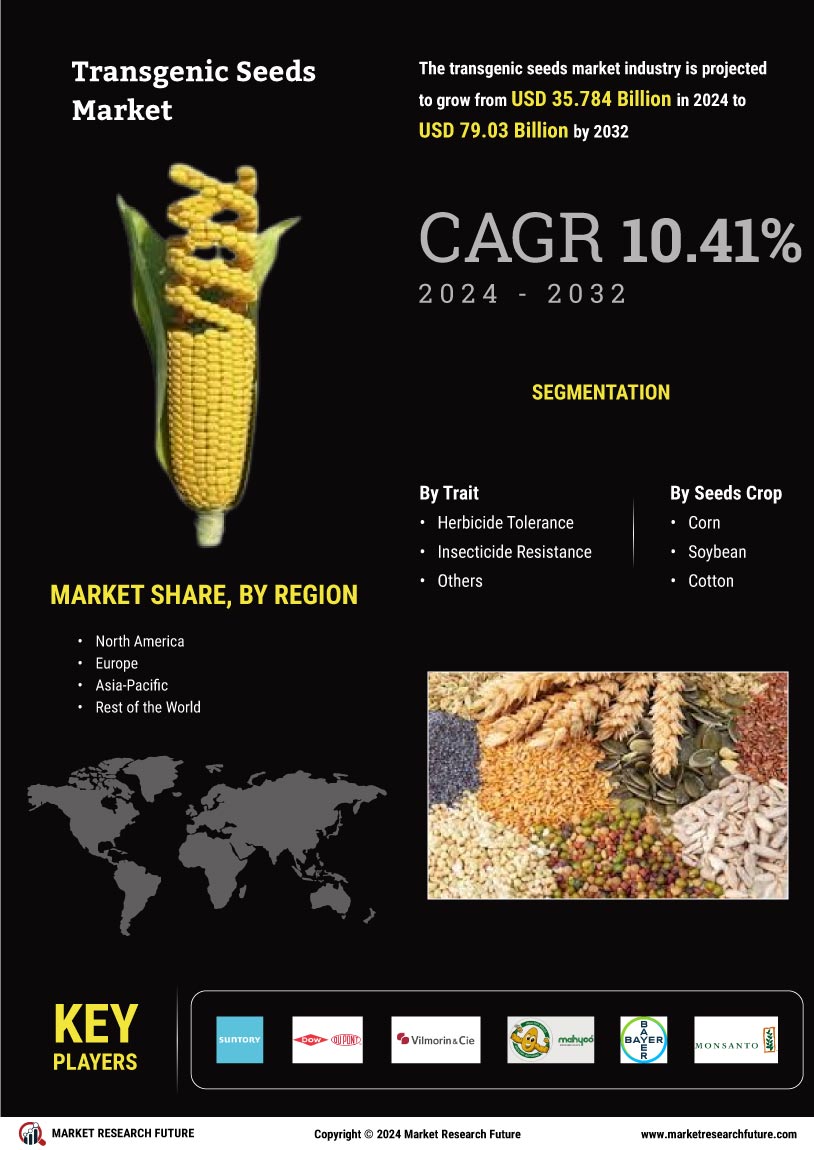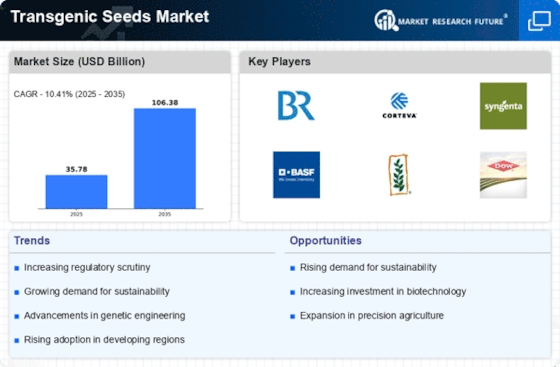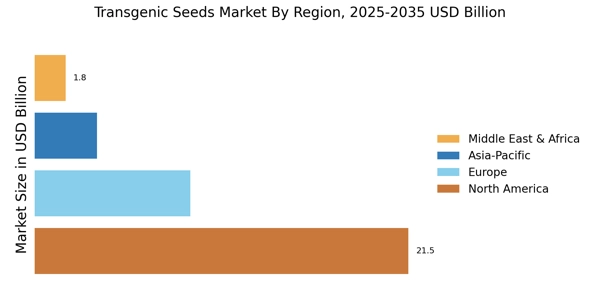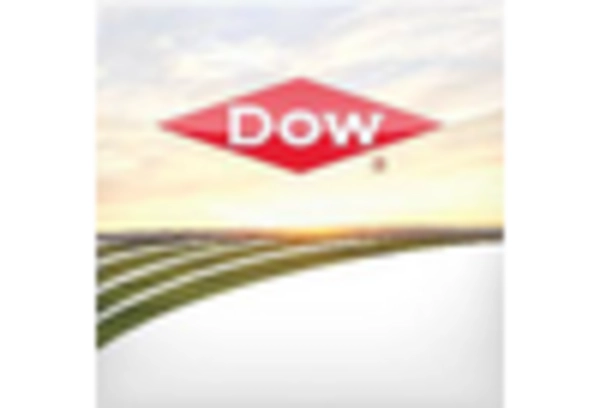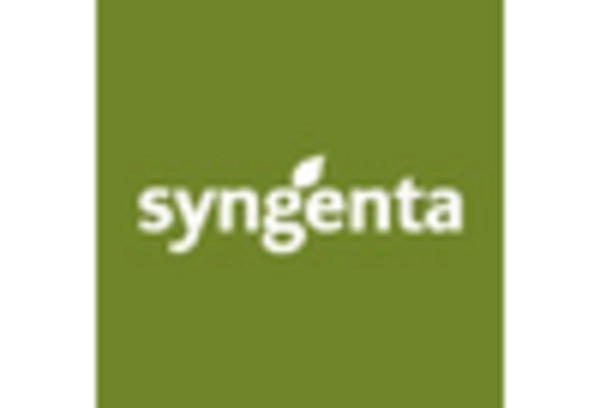Rising Demand for Food Security
The Transgenic Seeds Market is experiencing a surge in demand driven by the increasing need for food security. As the global population continues to grow, projected to reach approximately 9.7 billion by 2050, the pressure on agricultural systems intensifies. Transgenic seeds, known for their enhanced yield and resistance to pests and diseases, offer a viable solution to meet this demand. In fact, studies indicate that transgenic crops can yield up to 30% more than conventional varieties. This heightened focus on food security is likely to propel the adoption of transgenic seeds, as they provide farmers with the tools necessary to produce more food on limited arable land.
Environmental Sustainability Initiatives
The Transgenic Seeds Market is increasingly influenced by the growing emphasis on environmental sustainability. As concerns about climate change and resource depletion mount, there is a pressing need for agricultural practices that minimize environmental impact. Transgenic seeds, which often require fewer chemical inputs and can be engineered for drought resistance, align well with these sustainability goals. Reports suggest that the adoption of transgenic crops can lead to a reduction in pesticide use by up to 50%, thereby decreasing the ecological footprint of farming. This alignment with sustainability initiatives is likely to enhance the appeal of transgenic seeds among environmentally conscious consumers and policymakers.
Government Support and Policy Frameworks
Government policies and support mechanisms are crucial drivers of the Transgenic Seeds Market. Many countries are recognizing the potential of biotechnology in agriculture and are implementing favorable regulatory frameworks to encourage the development and adoption of transgenic seeds. For example, initiatives that provide funding for research and development in agricultural biotechnology are becoming more common. Additionally, some governments are establishing guidelines that streamline the approval process for new transgenic varieties, thereby facilitating quicker market entry. This supportive environment is likely to foster innovation and investment in the transgenic seeds sector, ultimately contributing to its growth.
Technological Advancements in Agriculture
Technological innovations are playing a pivotal role in shaping the Transgenic Seeds Market. Advances in genetic engineering and biotechnology have led to the development of seeds that are not only more resilient but also tailored to specific environmental conditions. For instance, the introduction of CRISPR technology has revolutionized the way transgenic seeds are created, allowing for precise modifications that enhance crop performance. This trend is reflected in the increasing investment in agricultural biotechnology, which reached an estimated USD 5 billion in recent years. As these technologies continue to evolve, they are expected to drive further growth in the transgenic seeds sector, enabling farmers to adopt more efficient and sustainable practices.
Increasing Awareness and Acceptance Among Farmers
The Transgenic Seeds Market is witnessing a shift in perception among farmers, leading to increased awareness and acceptance of transgenic seeds. As more farmers experience the benefits of using genetically modified crops, such as higher yields and reduced pest damage, the stigma surrounding transgenic technology appears to diminish. Educational programs and outreach initiatives are playing a significant role in informing farmers about the advantages of transgenic seeds. Recent surveys indicate that approximately 70% of farmers who have adopted transgenic crops report satisfaction with their performance. This growing acceptance is likely to drive further adoption, thereby expanding the market for transgenic seeds.
